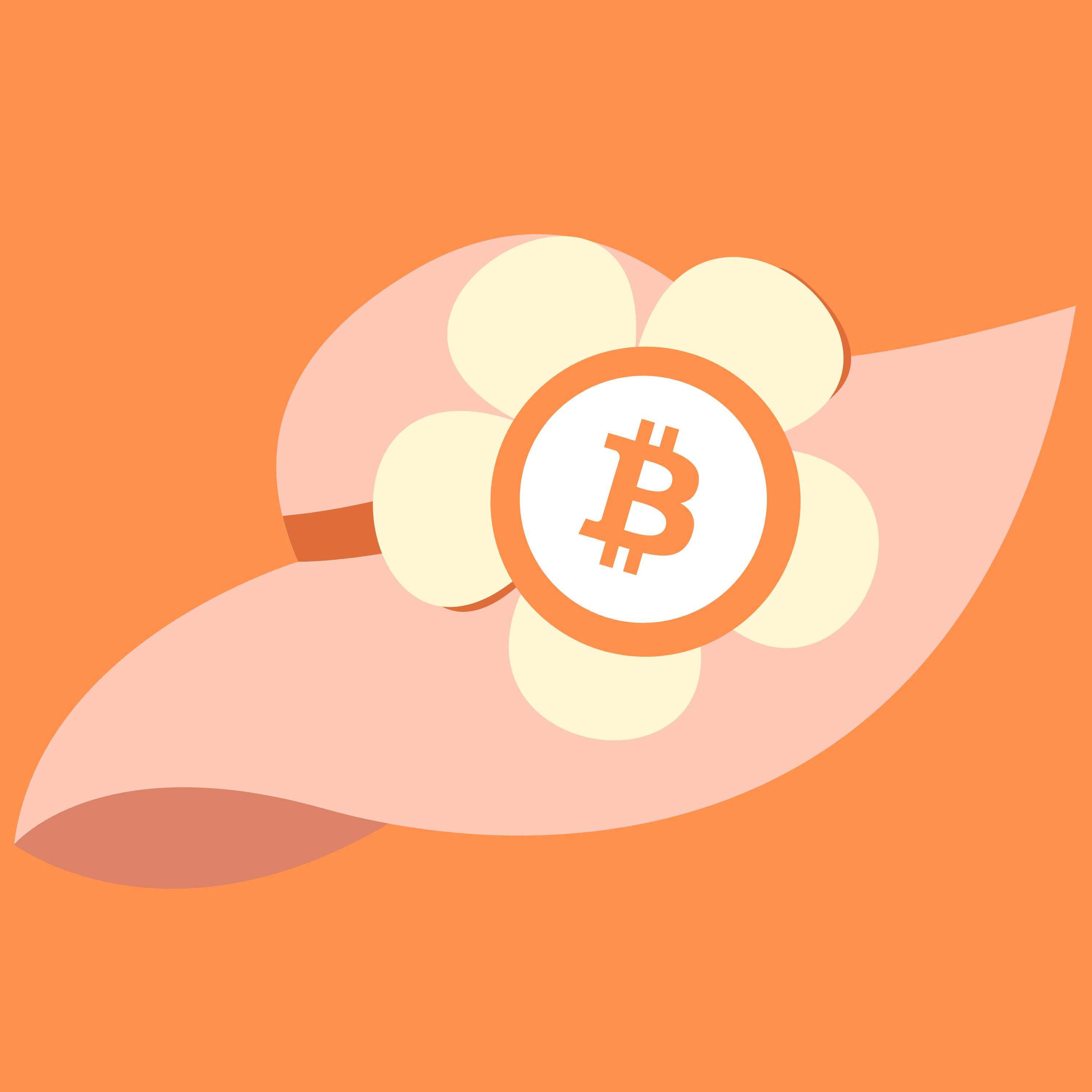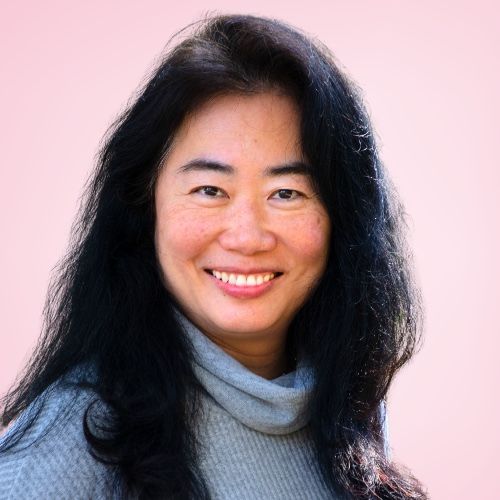Episode 41
A Tale of Two Americas: Marina's Bicultural Experiences and Exploration of Bitcoin - 4
In this episode:
-Marina discusses her involvement in growing the Chaincode Labs developer ecosystem in emerging markets.
-She elaborates on Qala, a Bitcoin developer education platform in Africa, and the need for similar initiatives in places like El Salvador.
-Marina highlights “http://Torogoz.dev” real-life applications like immediate payments to coffee growers, potentially becoming a global model for transparent transactions in the agro-industry.
The conversation emphasizes the importance of education, local recruitment, and thoughtful integration of Bitcoin into everyday processes, particularly in the global south.
Marina's Contact Info:
Nostr-npub17069lhtwe279umwker069lcp33aqdgew70tn5q8cu2avml3sxpsqcu8hgu
Twitter-@MarinaSpindler
To learn more about Bitcoin: Join the Orange Hatter Women's Reading Club. Visit https://www.meetup.com/womensbitcoinreadingclubwithorangehatter
Please email questions/comments to Tali@orangehatter.com
Remember: Knowledge is empowerment! 🍊🎩
Mentioned in this episode:
Free Market Kids Short
Get your HODL UP ("The best bitcoin game ever!") at www.freemarketkids.com.
Transcript
Hi everyone.
Tali:Welcome to Orange Hatter.
Tali:Today you're listening to part four of my conversation with Marina.
Tali:... and I wanna go into what you're doing in El Salvador.
Marina:Well, of course.
Marina:One of the projects that I was working on in the ecosystem was
Marina:working with Chaincode Labs to help grow their developer ecosystem in,
Marina:around the world in emerging markets.
Marina:And so one of the projects that I was supporting with connections,
Marina:calling people, making sure that it, the project was succeeding, was
Marina:Kala, which is a program in Africa.
Marina:Kala is a Bitcoin developer education platform where you
Marina:are part of some of a program.
Marina:You get selected as a developer with a certain amount of experience
Marina:and you go through this open source free and open source program.
Marina:But in that particular case, they have really great mentors.
Marina:There's a whole project around it.
Marina:And so that program selected 14 fellows for their, their program, and it was
Marina:14 fellows from across Africa that were selected, and I thought it was brilliant.
Marina:I thought it was great that this could happen in emerging markets, that this
Marina:was being created, but I, I also felt the need that, and, and they agreed
Marina:obviously, that there was a need for this to happen in other places.
Marina:Right?
Marina:Thailand, Mexico, Columbia, Argentina, wherever we could
Marina:invite people to participate like you can, Chaincode has....
Marina:Lab has a, an open source project program that you can join.
Marina:It has lessons that like, it starts like a certain date and you participate
Marina:and you learn, and then you can become part of the community, right?
Marina:If you're a developer, so what, what I thought was, well, if El Salvador has the
Marina:new law where Bitcoin is legal tender and companies are having trouble hiring local
Marina:talent because the, you know, obviously they, they're programmers but they don't
Marina:understand Bitcoin or lightning, maybe something that would be really important
Marina:because obviously, as you may remember, this was a top-down decision where the
Marina:president suddenly, suddenly announced via Jack Mallers in Miami, that, that
Marina:Bitcoin was legal tender in the country.
Marina:It really was not well received by the business community or
Marina:the country and the TiVo wallet.
Marina:Even though it was a, an important attempt to make sure that it was massified in
Marina:the country and accepted, it really didn't come from the ground up the
Marina:way that Bitcoin is usually grows, or is usually encouraged, peer to peer.
Marina:There was a, a lot of like negative feelings surrounding
Marina:it and very politicized.
Marina:Right?
Marina:And so you couldn't hire because there was no talent.
Marina:You couldn't really, the ... wallet wasn't working.
Marina:And so most, most of the people's experience with Bitcoin at
Marina:the time was not a good one.
Marina:It was, like, okay, the, the TiVo ATM machine ate my Bitcoin or
Marina:my, my, I can't understand this.
Marina:So people were, a lot, a lot of them were converting that $30 that the government
Marina:gave them into dollars directly.
Marina:They were not keeping the Bitcoin, so, And in any case, the
Marina:whole talent, part two, right?
Marina:10, 10 or so companies moved to El Salvador, but they couldn't hire, so
Marina:they were importing talent, right?
Marina:And there's no talent.
Marina:There's no talent.
Marina:I don't believe in that.
Marina:I used to recruit talent for a living.
Marina:I know that you have to go find them, right?
Marina:Most people will tell you, okay, talk to this person and that person.
Marina:But those are the safe choices.
Marina:Those are not the, the, the grit people, the, the people who are gonna care and
Marina:go above and beyond because they're fascinated by the, by the technology.
Marina:You know, it's not like natural, okay, I'm gonna spend 2,000
Marina:hours studying about Bitcoin.
Marina:It's not like if you have a job, if you have a life, you don't,
Marina:you don't, you're not immediately just gonna jump in and do it.
Marina:There has to be cer a certain, you know, process or course,
Marina:or a something available to recruit you to learn about it.
Marina:Right?
Marina:Somebody has to tell you, hey, you should, you should do this.
Marina:And so we created a, a program that is very similar to Kala in the, in the
Marina:sense of focusing on developers already.
Marina:Not, there's other programs out there that are teaching you how to download
Marina:a wallet or teaching you the, you know, the basics about Bitcoin, but this
Marina:was very focused on technology, right?
Marina:So developers with over two years of experience in programming, and
Marina:we started with mastering Bitcoin, which is like a Socratic seminar, and
Marina:we had 80 students go through that, which we call Proof of Work, right?
Marina:Who actually does the homework?
Marina:Who actually does the reading?
Marina:Who is asking questions?
Marina:And then we did Mastering Lightning, which is the other book that goes
Marina:through the Chaincode Labs program.
Marina:And there we had 30 students who did the homework, who passed our test,
Marina:who were kept showing interest even though they have full-time jobs.
Marina:And finally, we, from those 30 students, we made another test.
Marina:We asked them to, you know, just prove that they wanted
Marina:to be part of the fellowship.
Marina:And from there we selected six students who became part of the fellowship program.
Marina:They are working on a project right now, which I think is really,
Marina:really, really unique, right?
Marina:Because for example, Kala in Africa, there's no country like where you can
Marina:just, okay, here we are, we're gonna use Bitcoin transparently all over the place.
Marina:You can't really embed it in businesses super easy yet, and yet
Marina:in in El Salvador, we had that unique difference where it can be embedded
Marina:in a business because it is legal.
Marina:And so we decided to partner with a company that is focused in the agro,
Marina:in agro tech, agro industry business.
Marina:They are a coffee grower association.
Marina:I.
Marina:That, you know, the leader of, of the, of the Coffee Grower
Marina:Association is Cherito Cafe.
Marina:Cherito is, has coffees that are called Genesis Block.
Marina:I mean, he's a Bitcoiner by heart, but he really could, he really had,
Marina:had, uh, had not integrated Bitcoin or lightning in his payment system.
Marina:So how does he pay farmers?
Marina:How do coffee, coffee exporters or, or people in Germany or us paying him how
Marina:he pays the, the, the coffee growers that entire side of the business.
Marina:You know, yes, he was enthusiast of business of Bitcoin, but he
Marina:had not integrated lightning and Bitcoin into his payment process.
Marina:So what we wanted to do was something that you called Marco Pais,
Marina:which is a country brand, right?
Marina:We wanna help him become a country brand of Bitcoin and for El Salvador.
Marina:So a brand for Bitcoin and a brand for El Salvador by helping
Marina:him integrate lightning payments into his whole ecosystem.
Marina:So when, when he buys coffee from the grower in a certain region.
Marina:He gets his payment immediately through lightning and doesn't have
Marina:to wait three to four months live in that purgatory of pretend money.
Marina:Right.
Marina:Where like, they're gonna pay you, but who knows when?
Marina:Like, no, it's immediate, it's instant.
Marina:You get your, your, you know, and you can also pay the different coffee
Marina:growers, not just one, and then trickle it down with the extra fees.
Marina:Right.
Marina:You just.
Marina:Spread it out and do it very transparently.
Marina:So that's the project that we're working on.
Marina:We're gonna be what we call from seed to coffee cup, right?
Marina:So the process of the payment, the payments is gonna be ex
Marina:extremely, hopefully streamlined the supply chain of coffee.
Marina:And again, coffee is a global, a global phenomena, and the goal is because it will
Marina:be an open source system, any company in El Salvador can copy this payment system
Marina:that we built for Cherito Cafe or any company, let's say Colombia or Mexico,
Marina:or who, or Ethiopia, who is fascinated by this, who wants to do this as well,
Marina:they could potentially do it as well.
Marina:So it can become a, a brand for Bitcoin and a brand for coffee
Marina:and a brand for El Salvador.
Marina:If we can make this succeed, and obviously it's a lot of work,
Marina:it's gonna be a six month program because our students work full time.
Marina:So you have to remember that part too, that that is different
Marina:from other countries and other situations, but it's also legal.
Marina:So we can do it and we can really not feel like, okay, is this gonna pass the law?
Marina:Is this gonna get us in trouble with, you know...
Marina:we have that flexibility and freedom and so that is what the
Marina:project is trying to do now.
Marina:That is why right now we're trying to find a partner that really makes sense, where
Marina:we can, you know, set up a node for the team and set up, you know, the, the, the
Marina:fee you'd be able to, to, to do fees and payments and, and liquidity on the node.
Marina:So we're trying to raise about $12,000 for the program.
Marina:So we can, you know, do workshops that are not just for our fellows, but for
Marina:other people in the community, you know, and also get the node, get, get
Marina:the liquidity, start the program going, but only after proof of work, right?
Marina:We didn't do any fundraising before.
Marina:We're not asking for money every five minutes.
Marina:Like there's a lot of programs who are...
Marina:we chose to really be very careful and only fundraise once.
Marina:The program really needed it.
Marina:Right.
Marina:And once we've proven that the talent was there and that this
Marina:project was hopefully gonna be so unique that you should support it.
Tali:Yeah.
Tali:And if you can send me the contact info for anybody who listens to this
Tali:program and wants to reach out to you or to support the fellowship.
Marina:Wonderful.
Marina:Yeah.
Marina:And I'll send you our wallet for SATs.
Tali:Yeah, that would be great.
Tali:So you had mentioned that, that when it comes to coding and the developers, it's
Tali:so important to get local talent, and yet we talk about this being a global
Tali:system and things being open source.
Tali:Are you specifically referring to just the legal aspect of it or is there something
Tali:else that, uh, restricts, not restrict, but where having local talent is better
Tali:than, say, us just exporting talent from North America or Europe or something?
Marina:Well, I think learning about Bitcoin really takes time.
Marina:You know, it's not like a sudden, like, okay, now I'm
Marina:gonna just program in Bitcoin.
Marina:Right?
Marina:It really does take time.
Marina:And sometimes we underestimate that other people don't have
Marina:time in the global south.
Marina:Time is money.
Marina:They barely are passing back, passing the they, they don't, they cannot.
Marina:Right?
Marina:And so it really, like, they say proof of work, proof of work, but.
Marina:Sometimes we don't have time for it and it, and it's really hard and so that's
Marina:why it's so important to have programs that are, like, really recruiting abroad.
Marina:Not just, not just, okay, here it is free.
Marina:Right?
Marina:Like go talk to them.
Marina:Go talk to Bitcoin Guadalajara.
Marina:Go talk to Bitcoin Ekazi.
Marina:Go talk to Bitcoin, Guatemala.
Marina:Go talk to them and encourage them to participate because otherwise
Marina:they just don't know about it.
Marina:They don't have time to pay attention, and they're just
Marina:trying to struggle to survive.
Marina:Right?
Tali:Thanks for joining us today and learning with us today.
Tali:If the discussion with our guest resonated with you and you would
Tali:like to dive deeper into the world of Bitcoin, don't miss out on joining the
Tali:Orange Hatter Women's Reading Club.
Tali:The meetup link is in the show notes.
Tali:Also, if there are women in your life whom you think will both enjoy and
Tali:benefit from learning more about Bitcoin, please share Orange Hatter with them.


